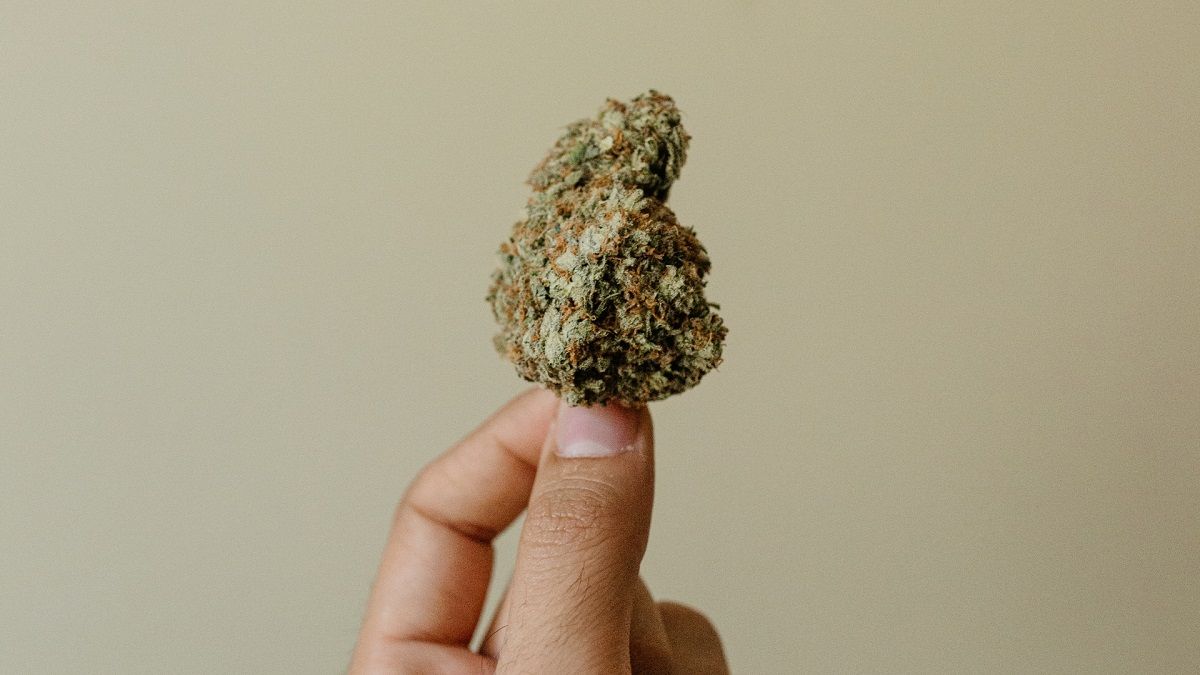The world of cannabis is a complex labyrinth, with emerging pathways leading to different cannabinoids, each with its unique properties and effects. It's more than just THC and CBD — it's THCA, CBG, CBN, CBC, and many others. Here, we'll dig into the depths of this labyrinth, shedding light on one particular cannabinoid: THCA. As we journey through, we'll unravel its mysteries and compare it to other prominent cannabinoids.

Understanding THCA
THCA, or tetrahydrocannabinolic acid, stands out as a substance with fascinating characteristics that diverge from the well-known THC. Here’s a closer look.
What Is THCA and Its Chemical Structure?
Tetrahydrocannabinolic acid (THCA) is one of the many cannabinoids found in the cannabis plant. Unlike THC, THCA is a non-psychoactive compound. This means it doesn't produce the 'high' commonly associated with cannabis consumption. Rather, THCA is the precursor to THC and is found in abundance in raw and live cannabis.
On a molecular level, the chemical structure of THCA is almost identical to that of THC, except for the presence of a carboxyl group (COOH). This additional group is what keeps THCA from being psychoactive. When exposed to heat, through a process known as decarboxylation, THCA loses its carboxyl group in the form of carbon dioxide and water vapor, effectively converting it into THC and becoming psychoactive.
Role of THCA in the Cannabis Plant
In the cannabis plant, THCA acts as a precursor not only to THC but also to several other cannabinoids. As the plant matures and is exposed to heat or UV light, THCA gradually converts into THC.
Beyond its role as a precursor to THC, THCA may also play its part in the possible therapeutic use of cannabis. Early research suggests that THCA may possess a range of beneficial properties, including anti-inflammatory, neuroprotective, and antiemetic effects. This makes it a compound of significant interest to scientists, researchers, and medical professionals.
While more research is needed to fully understand the potential benefits and applications of THCA, these early findings hint at a wide range of possibilities. This cannabinoid may offer its unique contributions to the benefits of the cannabis plant, separate from the effects of THC.

Alternative Cannabinoids Compared
Let's take a comparative look at how THCA stacks up against other key cannabinoids.
THCA vs. CBD: Contrasting Non-Psychoactive Powerhouses
CBD, short for cannabidiol, shares a non-psychoactive nature with THCA. They both do not induce the euphoria or "high" often associated with THC. However, their similarities end there. While CBD is known for its potential therapeutic effects, like reducing anxiety, managing epilepsy, and mitigating pain, THCA is still under study. Preliminary research suggests THCA may also hold potent anti-inflammatory, neuroprotective, and antiemetic properties, providing a new avenue of therapeutic potential.
THCA vs. THC: Unraveling the Psychoactive Debate
THCA and THC are molecular siblings, sharing the same basic structure, but with one key difference: THCA does not induce the psychoactive effects that THC does. The absence of a psychoactive impact makes THCA a promising candidate for patients who want to avoid the high but still benefit from the therapeutic properties of cannabis.
THCA vs. CBG: Battle of the Precursors
CBG, or cannabigerol, like THCA, is a precursor molecule in cannabis. Both these cannabinoids are foundational and transform into other compounds as the plant matures. CBG is often hailed as the "mother of all cannabinoids," giving rise to THC, CBD, and CBC. While both have non-psychoactive properties, preliminary research suggests that they also work synergistically to produce an 'entourage effect,' enhancing each other's potential benefits.
THCA vs. CBN: Unveiling the Oxidation Process
CBN, or cannabinol, is a product of THC oxidation. It's often found in aged cannabis and is known for its potential sedative effect. Unlike THCA, CBN doesn't directly originate from the cannabis plant but is a derivative of its psychoactive cousin, THC. Both cannabinoids hold unique potential in the world of therapeutic cannabis, with THCA showing promise in neuroprotective and anti-inflammatory capacities and CBN being explored for its potential sleep-inducing effects.
THCA vs. CBC: Exploring Lesser-Known Cannabinoids
Cannabichromene, or CBC, is one of the minor cannabinoids that often goes unnoticed. While it shares its non-psychoactive nature with THCA, its effects on the body may vary. Like THCA, CBC has shown potential anti-inflammatory properties but also exhibits possible antidepressant qualities. While these cannabinoids may be lesser known, they both hold substantial promise in broadening the therapeutic applications of cannabis.

THCA Consumption Methods: Finding the Best Fit
THCA is primarily found in raw cannabis, making it an intriguing candidate for methods of consumption beyond traditional smoking or vaping. Consuming raw cannabis (juicing), tinctures, and THCA-infused edibles are just a few methods being explored.
Each consumption method comes with different levels of bioavailability and efficiency. For example, raw cannabis juicing preserves THCA's non-psychoactive properties and allows for a unique mode of ingestion, but the body's absorption of THCA through this method is still being studied.
On the other hand, THCA tinctures can be held under the tongue for sublingual absorption, potentially providing a more efficient way to absorb THCA. However, tinctures need to be carefully prepared to avoid decarboxylation and the resulting transformation of THCA into THC.
As science unravels more of THCA and other cannabinoids' mysteries, we'll undoubtedly continue refining the best ways to consume and benefit from these intriguing compounds.
As we continue to learn about these cannabinoids' potential applications and benefits, it's important to remember that cannabis research is still in its infancy, and many of these compounds' specific effects are not entirely understood. Always consult with a healthcare professional when considering cannabis for therapeutic purposes.
Find Out More On Social
--
Featured image: (C) Herban Bud @herban_bud



